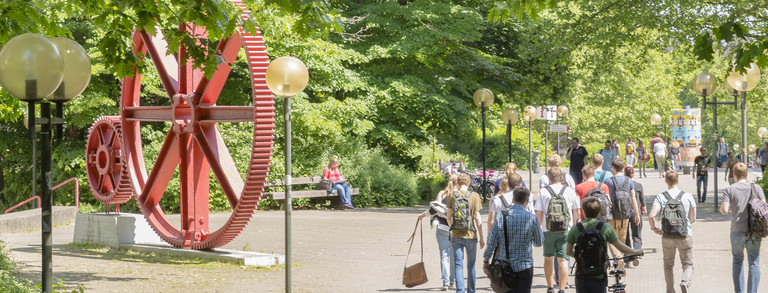Symposium on the occasion of the 20th anniversary of the Movement Ambulatorium at TU Dortmund University
- wissenschaftliche Veranstaltungen
Twenty "moving" years were honoured by the team of the Movement Ambulatorium (BwA) under the leadership of Vertr. Prof. Dr. Susanne Quinten with an anniversary celebration under the motto "Promoting, Teaching, Researching". Interested professionals as well as parents and children were invited. After the official opening act, professionals from various occupational groups had the opportunity to gain insights into selected focal points of psychomotricity within the framework of workshops and a specialist lecture. For the families and children, exciting movement activities and the traditional stick bread were on the programme.
The working method of the movement ambulatory can generally be described as psychomotor development support. The starting point of psychomotor development support is children's great desire to play, move and experiment. Depending on the therapy goals, the medium "movement" is used, among other things, to
- train and improve their own perception and movement behaviour - to sharpen their awareness of themselves and other people.
- create better conditions for learning at school and - to strengthen their confidence in themselves and their own strengths.
The term developmental support means here that it is less a matter of treatment in the narrower sense, but rather of pedagogical or therapeutic support that is oriented towards the individual needs of the child. At present, about 50 children and adolescents with various movement and perception disorders are supported in the Movement Outpatient Centre.
The Movement Ambulatorium is a university teaching and research facility. Therapists, students and employees of the TU Dortmund University, children and families have been working together here in a lively exchange for 20 years. The BwA is an institution of the Centre for Counselling and Therapy (ZBT), under whose umbrella four teaching and research outpatient departments of the faculty conduct research and work.
Contact for queries:
Vertr.-Prof. Dr. Susanne Quinten (Head of the BwA).
Faculty of Rehabilitation Sciences
Telephone: 0231-755 4581
E-mail: susanne.quinten@tu-dortmund.de
Dipl.-Päd. Dagmar Slickers (Case Management ZBT)
Faculty of Rehabilitation Sciences, Centre for Counselling and Therapy
Phone: 0231-755 5202
E-mail: dagmar.slickers@tu-dortmund.de

